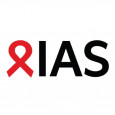In 2023, around 5.4 million of the 39.9 million people living with HIV worldwide – one in seven – were not aware of their status. At the same time, 9.3 million – nearly one in four – were not receiving life-saving treatment. With 7.5 million people having started pre-exposure prophylaxis (PrEP) to date, we will not achieve the global goal of 10 million PrEP initiations by 2025.
Those who are not being reached are especially likely to be struggling with poverty and social inequalities or to be members of key and affected populations, including men who have sex with men, sex workers, trans people, people who use drugs, migrants and people in prisons and other closed settings.
Despite significant advancements in long-acting PrEP and treatment, these technologies are largely out of reach in low- and middle-income countries. High drug prices, restrictive licensing and limited manufacturing capabilities are likely to hinder the rollout of the long-acting PrEP products, cabotegravir and lenacapavir, while long-acting HIV treatment becoming accessible in the hardest-hit regions is an even more distant prospect. For millions, barriers such as inequities, stigma, discrimination and harmful laws continue to stand in the way of comprehensive HIV care. Less than 3% of resources were spent on HIV prevention for key populations. This investment gap must be bridged if we are to reach all.
For millions, barriers such as inequities, stigma, discrimination and harmful laws continue to stand in the way of comprehensive HIV care. Less than 3% of resources were spent on HIV prevention for key populations. This investment gap must be bridged if we are to reach all.
Unite to reach all this World AIDS Day
This World AIDS Day, the International AIDS Society calls on people everywhere to rally around the theme, Unite to reach all. We must unite science, policy and activism to ensure that all can seamlessly access the support and care they require.
The voices of scientists, healthcare providers, policy makers, civil society and people living with and affected by HIV need to come together to ensure that the benefits of scientific advancement reach everyone.
The world has the means to end HIV as a threat to public health and individual well-being for all by 2030. We can only achieve this by addressing gaps in care, especially in low- and middle-income countries, reforming law and policy, improving access and strengthening health systems.
Reforming discriminatory laws and policies is essential to reducing HIV vulnerability. We must unite to advocate for reforms so everyone can access care without fear of harassment, discrimination or legal consequences. Equitable access in all global regions is needed for long-acting PrEP and treatment to achieve their potential. We must work together to remove barriers and create solutions that will allow those with the greatest need to access the most effective forms of HIV prevention and treatment.
We need to create health systems that involve communities, are adequately resourced, turn research into practical solutions and are free of stigma and discrimination.
No one understands the challenges of HIV better than people living with and affected by HIV, who must be at the forefront of the response to reach everyone.
Click here to read more, including how you can get involved on this World AIDS Day and how the IAS is uniting to reach all.








Comments
Comments